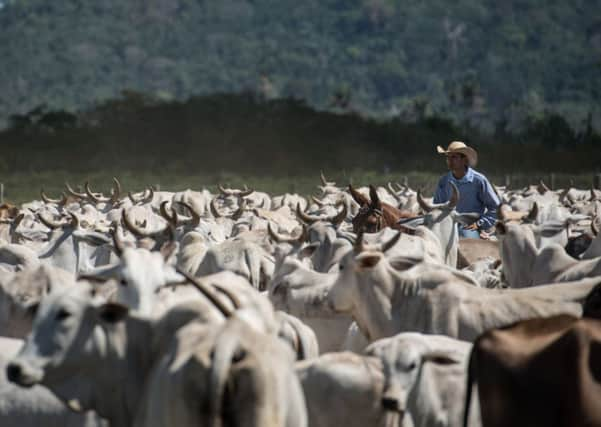Family farms can fight global food crisis


The United Nations has declared 2014 the International Year of Family Farming to spotlight the role of family farms in reducing hunger and poverty, preserving natural resources and achieving sustainable development.
With more than 500 million family farms across the world, family farming is the predominant form of agriculture, particularly in developing countries, where small family holdings account for 80 per cent of the farming sector. Today, according to the UN Food and Agricultural Organisation, more than 70 per cent of the world’s food-insecure population live in rural areas of Africa, Asia, Latin America and the Near East. Many of them are family farmers, especially smallholders, with poor access to natural resources and technologies.
Advertisement
Hide AdAdvertisement
Hide AdI have a personal interest in marking this UN International Year as I grew up on a small farm in the fertile soils of the state of São Paulo in Brazil. Watching my father at work on his farm, I learnt from an early age that, as we say, “the eye of the farmer fattens his cattle”. That is the purpose of this International Year: to focus the international eye to this critical scale of farming.
From the early 1990s, our region witnessed a change in the landscape of family farming, with the expansion of the ethanol industry and sugar cane production absorbing more and more of our limited natural resources. I saw the viability of family farming come under threat as the most productive land was increasingly used, not for food production to meet local needs, but to produce bioethanol for cars. As life in the small-holds became harder, the young farmers lost faith in farming – the dynamic urban economy promised nightly on their television screens offered a more attractive future.
In Scotland, the International Year of Family Farming presents an opportunity to support our own family farmers and to ensure that we maintain a robust, sustainable source of healthy food, today and in the future. Under the auspices of the International Year, NFU Scotland, CIFAL and partners are inviting a discussion on how we can make family farming in Scotland an attractive proposition for future generations.
At its heart, the family farming model seeks to promote cultural and ecological diversity and enable societies to rediscover the link between the soil and sustainable development.
While some countries continue to push for the use of more chemically intensive and corporate-dominated farming methods such as genetically modified organisms (GMOs) and monoculture-based crops, the UN is sounding the alarm about the urgent need to return to and develop more sustainable, natural and organic systems.
That was the key point of a recent report from the UN Commission on Trade and Development (UNCTAD). With contributions from more than 60 experts around the world, the report presents an alarming vision of the future, where climate change threatens agricultural production and population growth leads to resource scarcity, creating one of the biggest international security challenges of the 21st century.
The report calls for a rapid and significant shift from conventional, high-intensity industrial production methods towards a model of sustainable production that also considerably improves the productivity of small-scale farmers and prioritises local food production.
We have a global food crisis and it is getting worse. Transformative changes are needed in our food, agriculture and trade systems. The UNCTAD report envisages a future of rising food prices, political instability and international tension linked to resource conflicts and the mass migration of starving populations. This is why family farms are so vital. They sustain and empower the most vulnerable communities, those for whom food security is a matter of life and death.
Advertisement
Hide AdAdvertisement
Hide AdMy father has passed away and with him a whole generation of family farmers in his region has gone. The land on which they toiled is no longer used for food production; instead the sugar cane it produces feeds the gas tanks of the emerging middle class. But as the world grapples with the challenge of how to feed a burgeoning population, my hope is that family farms, like the one I grew up on, can provide some of the solutions to this pressing problem.
• May East is CEO of CIFAL Scotland, a United Nations Institute for Training and Research sustainability centre based in Edinburgh: www.cifalscotland.org
SEE ALSO